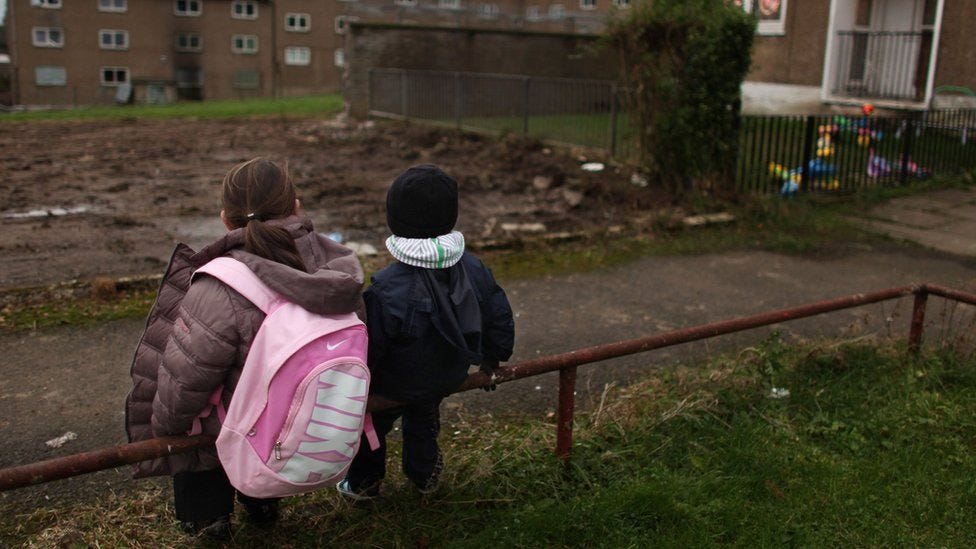Economic havoc is ripping Britain to pieces - and the Tories have no answers to solve it
Liz Truss and Kwasi Kwarteng were continually warned about their mini-Budget's grave consequences. They ignored the dangers, and catastrophe has now hit.

Picture the scene. Labour ahead in the polls. Tories lagging behind. The economy is damaged. And the government is lacking massively. No, you aren’t in some 1990s whirlwind - it is, actually, the 2022 reality (for now, anyway).
But these past weeks have felt like the final decade of the 20th century all too familiarly. Labour is competent and well-positioned in the polls; the Tories are fiscally and politically weak; the economy is battered; government, on the whole, are failing the majority of the nation in its obligations.
So it does all feel a little ‘90s here and there. Most of all because of the economic and political situation. Since Friday’s shopping spree of tax cuts made by the chancellor, Kwasi Kwarteng, Britain’s financial stability has been in pure revolt. Markets losing confidence, the pound slumping, doom-and-gloom international forecasts, and livelihoods under rigorous questioning. On the political side, the argument continues: the Tories have lost control of the economy. They did in the ‘90s, Black Wednesday being the most well-known of cases, and that explosive legacy remains over two decades later.
The Tories have always been regarded, sometimes wrongly, that they are the party of sound money, of economic credibility, of financial stability. Labour, meanwhile, were denounced as reckless spenders and chaotic economic managers. Well … these hypotheses have most definitely vanished into the gutter these past weeks. The Tories have delivered the most reckless of tax cuts at this time of grave economic dysphoria. And the public’s fury at this pure dysfunctionality is starting to hit the desks of Tory MPs.
For months both Liz Truss and Kwasi Kwarteng attacked the Treasury’s attachment to Whitehall and its cosiness to ‘the Establishment’. It’s why, so appallingly, they sacked Sir Tom Scholar, the Treasury’s permanent secretary. Behind the scenes over the summer, Treasury officials were preparing for Truss’s team to enter Downing Street, grappling with her economic plan of tax cuts, a smaller state and deregulation. Those officials and those in the City’s financial quarters knew all too well the damaging and punitive consequences of any unfunded tax breaks, particularly to the most affluent. They warned the new chancellor about the possible outcomes of such a rush towards cutting taxes without a rigorous fiscal plan. Truss and Kwarteng were warned; they, instead, dismissed the advice and ploughed on regardless.
So the news over recent days came as no shock. The Bank of England’s intervention yesterday - to stop some pension funds from collapsing - was what was warned by economists. As well as vital alerts at home from financial experts, those around the world have also taken an interest in the UK’s bleak economic perspective. The denunciation of the current situation from the International Monetary Fund (IMF) is a damning and embarrassing judgment. For one of the world’s biggest and wealthiest economies, the very fact the IMF needed to offer its viewpoint surely demands recognition from both No10 and No11. And the intervention of Mark Carney this morning, the former Bank of England governor, shows how wrong the prime minister and chancellor have managed the situation.
The decision by the prime minister to participate in interviews with BBC radio stations across English regions was an unmitigated disaster. Her first appearance since last Friday’s ‘mini-Budget’, Truss was demolished by local broadcasters, often underestimated, through careful questioning under which she crumbled rapidly.
“What on earth were you thinking?”
“How on earth can we ever trust the Conservatives again?”
“Are you ashamed of what you’ve done?”
“It’s hard to know what is falling more since you entered Downing Street, the value of the pound or the Tory poll rating.”
“I mean your Chancellor, on Friday, opened up the stable door and spooked the horses so much you could almost see the economy being dragged behind them!”
“You’ve done this yourself. This isn’t to do with external forces. This is about your mini-Budget and what it’s done to the economy.”
All particular highlights.
The only thing Truss showed throughout those interviews was the power of local radio, as well as the importance of protecting the BBC’s status as a national institution. She certainly didn’t sell the government’s ‘mini-Budget’ or convince others of its merits (or lack of them). How interesting, too, that Truss failed to defend the chancellor’s abolition of the 45 pence income tax rate which, of course, benefits higher earners, not hard-pressed working families.
As the Tory conference gets underway on Sunday, just what could go wrong? NHS in chaos, law and order in bits, schools squeezed to the maximum, the economy wreaking havoc across Britain. Keir Starmer’s Labour are looking credible, demonstrating its status as a safe pair of hands on the economy and other fractured policy areas. Many voters are turning to them as the days and weeks of these crises pass. And polls are confirming as such.
All because this is a time of economic and political destruction - and the Tories have no answers left to solve the crises they created.


